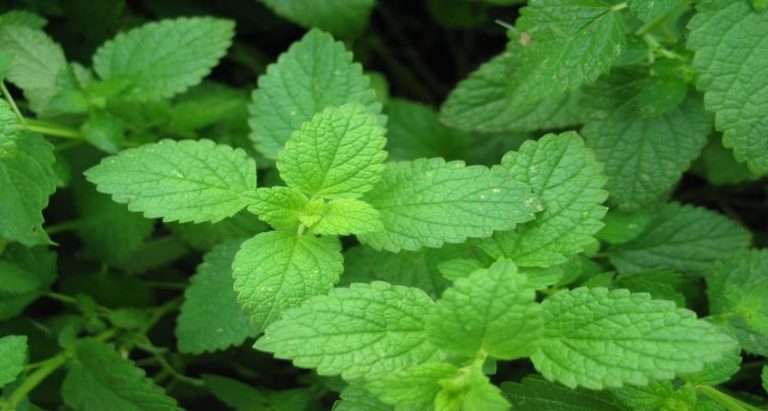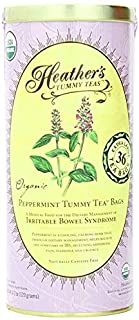Mint Tea: How to Choose The Best Mint For Making Tea
In an ideal world the best mint tea would be made from fresh mint leaves growing in your own herb garden. That way we could all have the best mint tea from fresh mint.
However, it’s not an ideal world so most of us have to settle for mint tea that is commercially available. This opens up a wide range of options.
However, we can still have homemade mint tea. But how do you choose the best mint tea?

Different Types of Mint Plants
There are some six hundred types of true mint. Some of these grow in specific locations. Others can be found almost anywhere.
If you are in North America and the Caribbean, these are some types of mint you can use to make tea.
Peppermint, Spearmint,. Apple mint, Mexican mint, Curley mint, Water mint, American Wild Mint, Cuban Mint, Jamaican Black Mint, and Lemon Mint.
Of course Peppermint and Spearmint are two types of mint you can find almost anywhere. (create table name and bio name.
In order to do that you will need to know what varieties of mint you can use to make tea. After that you can decide which mint tea best suits your personal needs.
Best Tea Mint
To decide on the best mint tea, you need to have an idea what benefits you want to get from the tea.
But, it doesn’t matter what variety of mint you choose, there are a few things that are important.
Fresh whole mint leaves are always your best choice if you have access to them.
Researchers isolated some key compounds in mint. One of those major compounds is limonene.
Limonene is found in many plants and is the chemical responsible for the citrusy aroma in fruits and other foods.
Peppermint leaves have between 1 and 5 percent limonene. But, one study found that as the peppermint plant matures the intensity of its major compounds, including limonene, decreases.
Therefore it makes sense that your best mint tea would be made from younger, tender mint leaves.
If you need to use commercially sold mint leaves, choose organic, dried, whole mint leaves. Although these may be more expensive, the quality is generally better.
You can also opt for good quality loose leaf mint tea. And they won’t cost as much as whole leaves.
Your last resort should be mint tea bags because usually they tend to be the lowest quality mint for making mint tea.
How to Make Mint Tea
To make mint tea you will need either some fresh mint leaves or a tablespoon of dried whole leaves. Now follow these steps:
1.Rinse 6 to 8 fresh mint leaves with cold water.
2. Place them in a cup.
3. Fill the cup with hot water.
4. Cover and let steep for 3 to 5 minutes
5. Strain, sweeten and enjoy.
Disclosure: This page may contain affiliate links. Therefore if you make a purchase by clicking a link, I may be paid a small commission.
Mint Tea Uses
Mint is one of the most widely used herbal remedies in the world. But what is mint tea used for? And does it work?
A number of studies reveal that mints are rich in phenolic compounds Three of the main ones are menthol, menthone and limonene.
These bioactive compounds give mint tea their medicinal properties. Here are some reason you may want to drink mint tea.
1. Indigestion
One of the most common uses of mint tea is for treating indigestion.
Several studies confirm that the essential oils in peppermint leaves can help settle upset stomachs and help with digestion.
One animal study reported that peppermint tea had a relaxation effect on the gastrointestinal (GI) tract.
This indicates that the tea may help relieve stomach spasms and indigestion.
2. Irritable Bowel Syndrome
Irritable Bowel Syndrome-commonly known as IBS affects millions of people worldwide. Symptoms of IBS include abdominal pain, bloating, and diarrhea.
According to IBSStats.Org there are between 2.4 and 3.5 million annual physician visits for IBS in the United States alone. As a result there is ongoing research to identify effective forms of treatment.
According to one report, “A few randomized controlled clinical trials suggest that peppermint essential oil is effective in reducing abdominal pain, flatulence and diarrhea in patients with “irritable bowel syndrome.”
Therefore, Peppermint tea may provide a safe alternative for treating Irritable Bowel Syndrome.
3. Headaches
Migraines and Tension headaches are the most frequent forms of headaches. According to the Cleveland Clinic researchers estimate that approximately 2 out of 3 people in the United States get tension headaches.
Menthol is one of the important bioactive compounds found in mint extracts. The compound has proven to be effective in relieving migraines and tension headaches.
A 2007 to 2008 randomized study of 35 patients in Southern Iran investigated the efficacy of menthol in relieving migraine headaches.
The participants were divided into two groups. One group was given menthol, while the second group received a placebo.
The findings revealed that a significantly higher number of patients experienced at least one pain free/pain relief after the application of menthol.
Those findings suggest that mintt tea may offer some relief to people suffering from tension or migraine headaches.
4. Nasal Congestion
Here again menthol is responsible for alleviating symptoms of the common cold. Menthol produces a cooling sensation.
Nasal congestion is a common symptom of colds. Nasal congestion obstructs airflow which makes it difficult to breathe. Menthol reportedly releases airway obstruction making it easier to breathe.
Several studies have confirmed this. And that is the reason menthol is the main ingredient in so many products used for treating nasal congestion.
5. Mental Focus
cup of mint tea is regarded as a great pick me up in many cultures.
Scientific research backed the claim that mint tea may elevate your mood and improve your mental alertness.
Essential oils extracted from mint leaves were found to contain a high concentration of the menthone. Menthone is similar to menthol and also gives plants their minty smell.
Studies using extracts from peppermint oil leaves showed that aroma given off by the plant provided a mood enhancing effect.
One study involved one hundred and forty four volunteers who were divided into three groups. The test was conducted to determine the effect aromas have on mood and mental alertness.
One group of participants was given peppermint oil aroma, another group was given ylang-ylang essential oils aroma and the last group did not receive any aromas.
The result showed that the participants who received peppermint oil aroma showed enhanced memory and increased alertness.
Health Benefits of Mint Tea
Is mint tea Good For You?
Yes. Mint tea is good for you because in addition to helping you feel better it contains some essential nutrients that your bod needs.
These nutirents include calcium, iron, Sulphur, potassium, and magnesium. Mint tea slo has Vitamin A, Vitamin C and Folate.
Is Mint Tea Safe?
Mint tea is generally considered to be safe. However some people experience heartburn and symptoms of GERD after drinking the tea.
Is it safe pregnant women and those who are breastfeeding? There is no evidence to indicate that peppermint tea can be harmful.
However, as is the case with all other herbal teas, it may be wise to limit your tea drinking to about 2 cups a day.
Conclusion
When you go looking for the best mint for making tea, pick whole orgaic mint leaves. Thats becuase they are generally better quality so they make the best mint tea.
Another reason is research shows that as the plant matures, mint leaves lose their intense flavor and aroma. Whole leaves tend to be more potent.
In addition there are several benefits you get from drkining mint tea. For instance it helps your body fight off colds and flu. It can sharpen your brain, and it reduces stomach pain, gas and bloating.
In addition, mint tea gives you some essential nutirents like vitamins and minerals.
Disclaimer: This website is for informational purposes only. Nothing on this site should be viewed as medical advice. Please consult with a professional healthcare provider for advice relating to your medical care.

